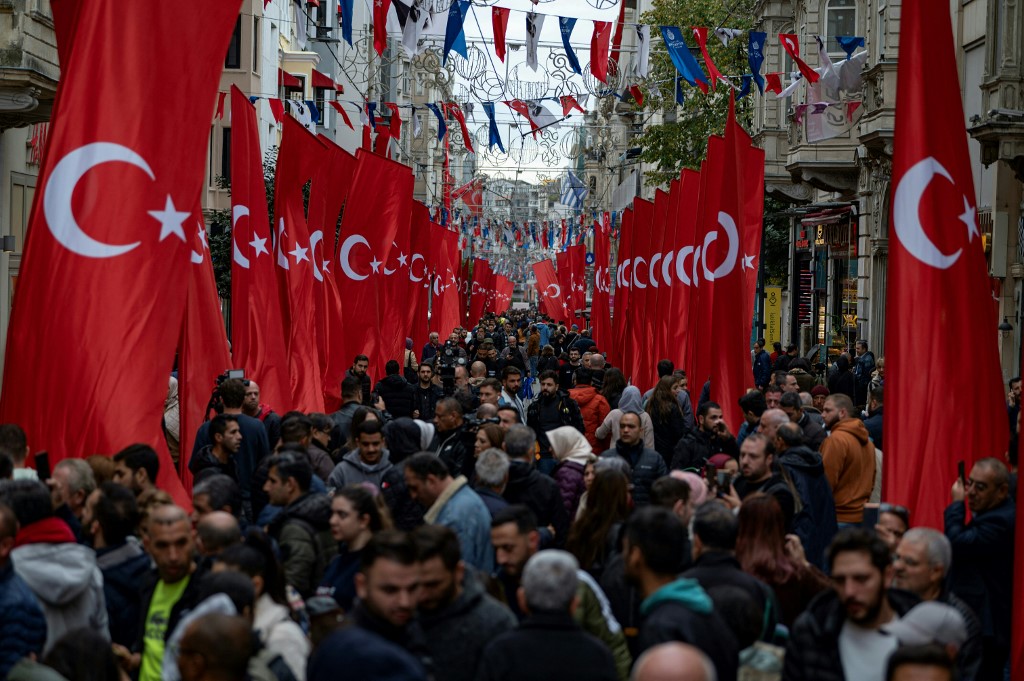A study reveals a growing skepticism among Turks towards the country’s religious directorate (Diyanet) and various Islamic cults, Deutsche Welle’s Turkish edition (DW Türkçe) reported on Wednesday.
The findings of the study by the Economic Policy Research Foundation of Turkey (TEPAV), published today, are based on comprehensive surveys conducted in 2016 and 2020.
According to the report, while 85 percent of respondents acknowledge the importance of religion in their lives, most of them confess to a limited understanding of their faith. This phenomenon has seen an uptick, with those admitting to a lack of religious knowledge increasing from 59 percent in 2016 to 71 percent in 2020.
A major highlight of the study is the Turkish people’s preference for secular and democratic governance. In 2016, 75 percent of participants expressed a desire to live in a secular state, a figure that had risen to 81 percent by 2020. Similarly, a significant portion of the population is satisfied with living in a democratic country, with a decline in those favoring a legal system based on Sharia law dropping from 22 percent in 2016 to 17 percent in 2020.
The study, titled “Pluralism Facing Radicalization in Turkey: A Study of Religion and Radical Attitudes in a Majority Muslim Country,” explored various aspects, including religious identity, levels of devoutness and tolerance towards ethnic and religious diversity.
Notably, the majority of Turkey’s population is Muslim and Sunni, with percentages recorded at 84 percent in 2016 and 87 percent in 2020. The surveys also highlighted regional variations in the significance of religion in daily life, with some areas showing increased religious importance, while others witnessed a decline.
Further, the polls underscored a demographic trend: Younger participants, especially those aged 18-24, are less likely to deem religion as crucial compared to older age groups, indicating a generational shift in attitudes towards religion.
In terms of education, the surveys revealed an inverse relationship between level of education and the perceived importance of religion. Respondents with an advanced degree reported a lesser emphasis on religion, a trend consistent across different educational backgrounds.
The report also addressed the sources of religious information for Turks, with roughly two-thirds of the 2020 survey participants stating they primarily received religious education from their families. Trust in the Diyanet and religious cults is notably low, with only 6.47 percent expressing confidence in the Diyanet and even fewer, 2 percent, in religious foundations or cults.
Interestingly, the surveys indicate a rise in pluralistic attitudes among Turks and a decline in radical religious views. Comparing the 2016 and 2020 results, the proportion of participants who believe “a non-religious person cannot be moral” has decreased.
The increasingly authoritarian governance of the Justice and Development Party (AKP), which uses Islamist rhetoric and enjoys the support of various Islamic cults in the country, disenchanted many Turks who disagree with the AKP about the role of religious cults and the Diyanet.
The country’s broadcasting authority recently imposed a broadcast ban and fine on FOX TV for a series titled “Kızıl Goncalar” (Red Roses) as the series is criticized for its portrayal of Islamic cults.
Critics, including exiled journalist Can Dündar, have accused the authorities of targeting the series for challenging societal norms and exploiting religious sects for political and financial gain.

